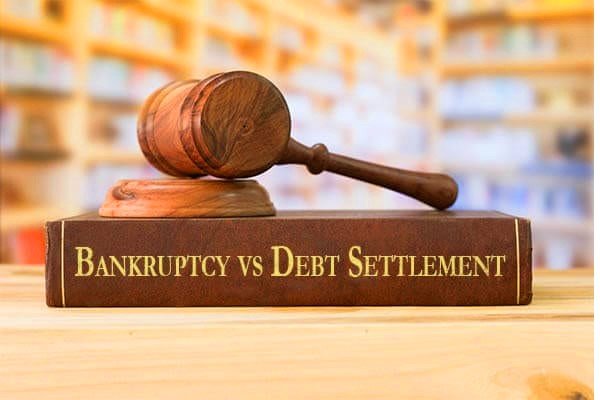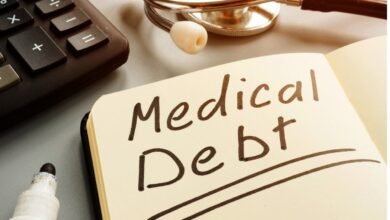Bankruptcy vs. Debt Settlement: Pros and Cons

In the complex world of personal finance, individuals facing overwhelming debt often find themselves at a crossroads, torn between bankruptcy and debt settlement options. Each path has advantages and disadvantages, and making the right decision requires careful consideration of individual circumstances and financial goals.
Bankruptcy Explained
Bankruptcy is a legal process designed to give individuals a fresh start by discharging or reorganizing their debts. There are different types of bankruptcy, with Chapter 7 and Chapter 13 being the most common. Chapter 7 involves liquidating assets to pay off debts, while Chapter 13 allows for restructuring debts through a manageable repayment plan.
Pros of Bankruptcy
Debt Discharge
One of the primary advantages of bankruptcy is the potential for a complete discharge of debts. This means that certain unsecured debts, such as credit card balances and medical bills, can be wiped clean, providing a clean slate for the individual.
Automatic Stay
An automatic stay is initiated upon filing for bankruptcy, halting creditors’ actions such as debt collection calls, lawsuits, and wage garnishments. This provides immediate relief and stability for those drowning in financial turmoil.
Fresh Financial Start
Bankruptcy offers the opportunity for a fresh financial start. Once the process is complete, individuals can rebuild their credit and work towards a more secure financial future.
Cons of Bankruptcy
Negative Impact on Credit Score
While bankruptcy provides relief, it comes at the cost of a significant hit to the individual’s credit score. The bankruptcy record remains on the credit report for several years, affecting the ability to secure new credit or loans.
Public Record of Financial Struggles
Bankruptcy is a public record accessible to anyone who cares to look. This lack of privacy can be a downside for individuals who value keeping their financial struggles confidential.
Potential Loss of Assets
In Chapter 7 bankruptcy, the liquidation of assets is part of the process. This means valuable possessions may be sold to satisfy debts, and individuals may lose some of their property.
Debt Settlement Explained
In contrast to bankruptcy, debt settlement involves negotiating with creditors to settle debts for less than the total amount owed. This option is often pursued by individuals who wish to avoid the long-term legal consequences of bankruptcy.
Pros of Debt Settlement
Potential Reduction in Overall Debt
One of the primary advantages of debt settlement is the potential for a significant reduction in the overall amount of debt owed. Creditors may agree to accept a lump-sum payment that is less than the total owed, providing relief for the debtor.
Avoidance of Long-Term Legal Consequences
Debt settlement allows individuals to address their debts without the long-term legal consequences of bankruptcy. While there are still negative impacts on credit, they are generally less severe and of shorter duration.
Less Impact on Credit Compared to Bankruptcy
While debt settlement negatively affects credit scores, the impact is often less severe than bankruptcy. This can be a crucial factor for individuals who want to minimize the long-term repercussions on their creditworthiness.
Cons of Debt Settlement
Negative Impact on Credit Score
Like bankruptcy, debt settlement comes with a negative impact on the individual’s credit score. The record of settled debts remains on the credit report, affecting the ability to secure new credit.
Tax Consequences on Forgiven Debt
The IRS considers forgiven debt income, and individuals may be required to pay taxes on the amount forgiven through debt settlement. This can create an unexpected financial burden.
Risk of Being Sued by Creditors
While negotiating debts, there is a risk that creditors may choose to take legal action to collect the total amount owed. This risk is inherent in the debt settlement process.
Read More: Financial Freedom: Escaping the Chains of Debt
Factors to Consider
Several factors should be considered when weighing the pros and cons of bankruptcy and debt settlement. The individual’s financial situation, the type of debt they carry, and the long-term impact on credit are crucial considerations.
Making the Decision
Deciding between bankruptcy and debt settlement requires careful consideration and, in many cases, consultation with financial advisors. Understanding the individual pros and cons based on one’s unique circumstances is essential for making an informed choice.
Case Studies
To provide a practical perspective, let’s explore two case studies—one of an individual who chose bankruptcy and another who opted for debt settlement.
Real-Life Example: Bankruptcy
John, facing overwhelming credit card debt and medical bills, opted for Chapter 7 bankruptcy. While he experienced a temporary hit to his credit score, the discharge of debts allowed him to rebuild his financial life. Today, John has secured new credit and is on a path to economic recovery.
Real-Life Example: Debt Settlement
Sarah, struggling with multiple debts, chose debt settlement as a way to avoid the long-term legal consequences of bankruptcy. Through negotiations with her creditors, she successfully settled her obligations for a reduced amount. While her credit was impacted, the shorter duration of the adverse effects allowed her to recover more quickly.
Read More: The Myth of Debt Consolidation
Conclusion
There is no one-size-fits-all solution in the intricate dance between bankruptcy and debt settlement. Each option has merits and drawbacks, and the choice depends on individual circumstances. By understanding the pros and cons outlined in this article, individuals can navigate the path to financial recovery more confidently and clearly.
FAQs
What is the difference between Chapter 7 and Chapter 13 bankruptcy?
Chapter 7 involves liquidating assets, while Chapter 13 allows debt restructuring through a repayment plan.
Can I keep any assets if I file for bankruptcy?
In Chapter 7, some assets may be exempt, but others may be sold to satisfy debts.
How long does the debt settlement process take?
The duration of debt settlement varies, but it typically takes several months to a few years.
Will creditors always agree to settle debts for less than the total amount?
There’s no guarantee, but many creditors are willing to negotiate for a reduced amount.
How does bankruptcy impact my ability to secure future loans?
While it initially affects credit, individuals can rebuild and secure loans in the future.












2 Comments